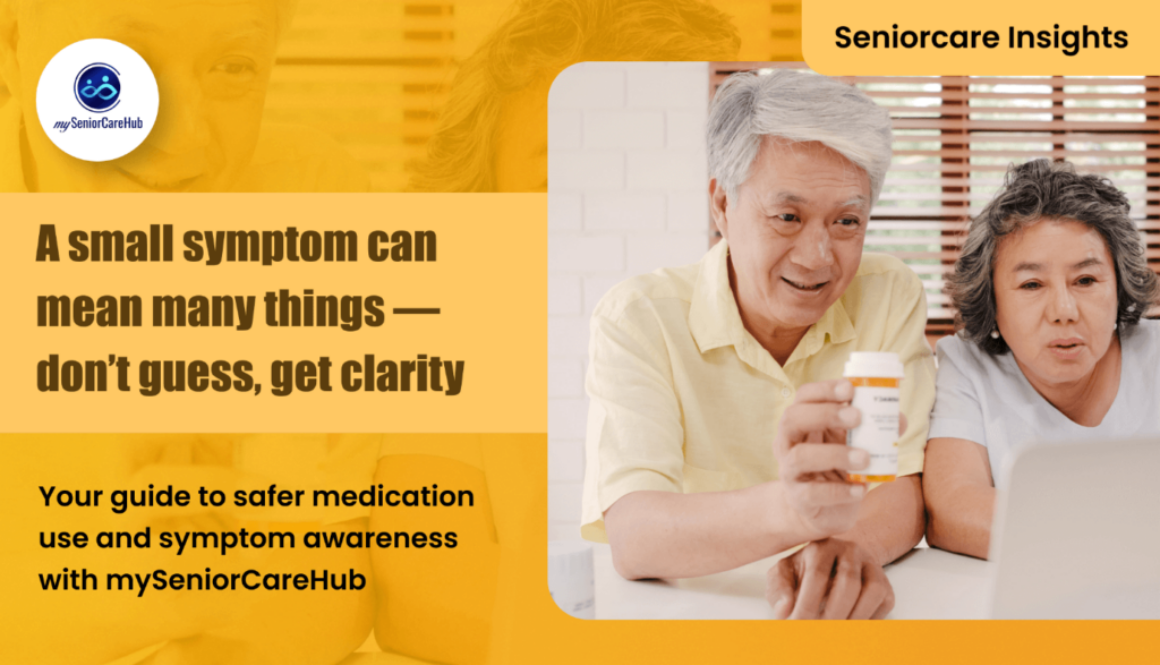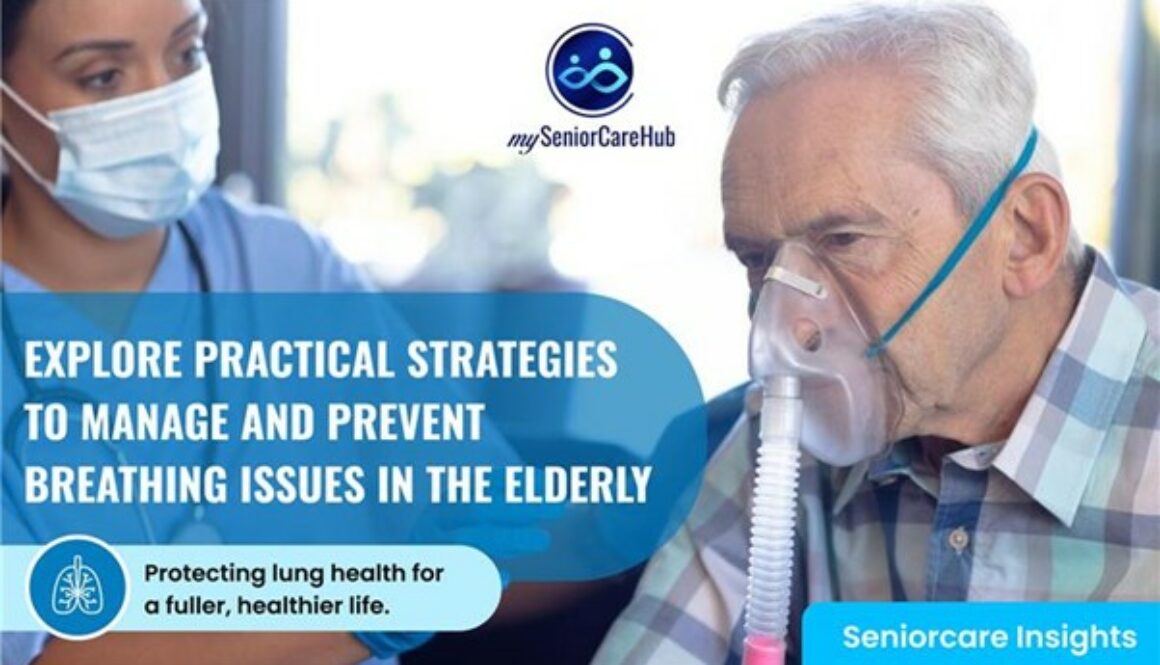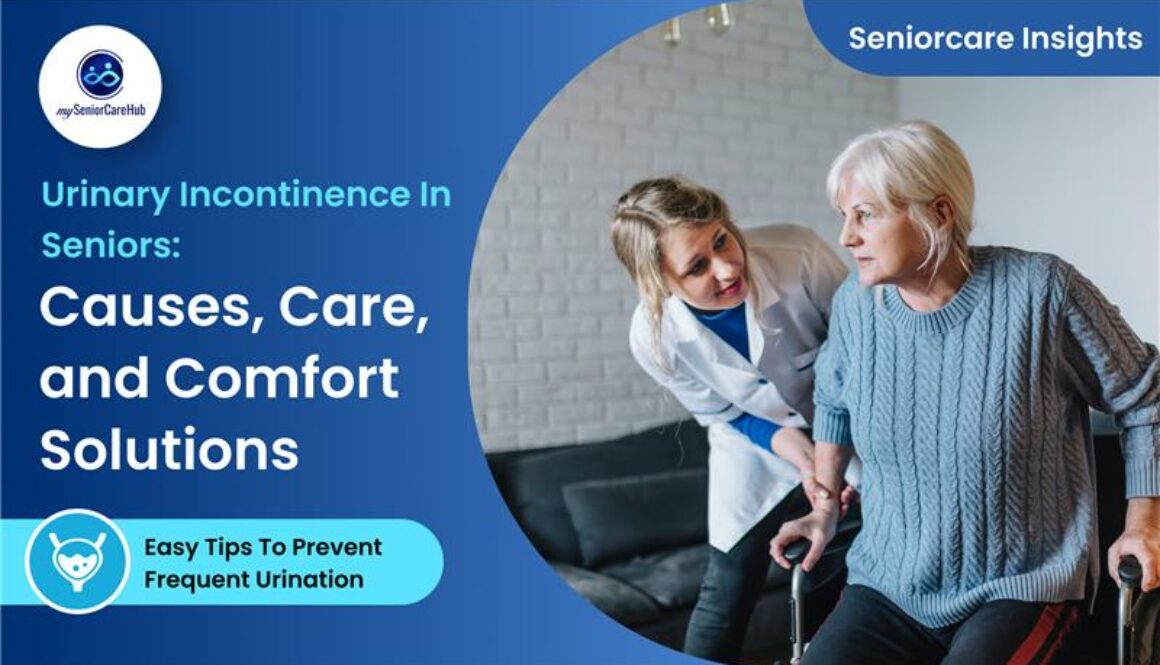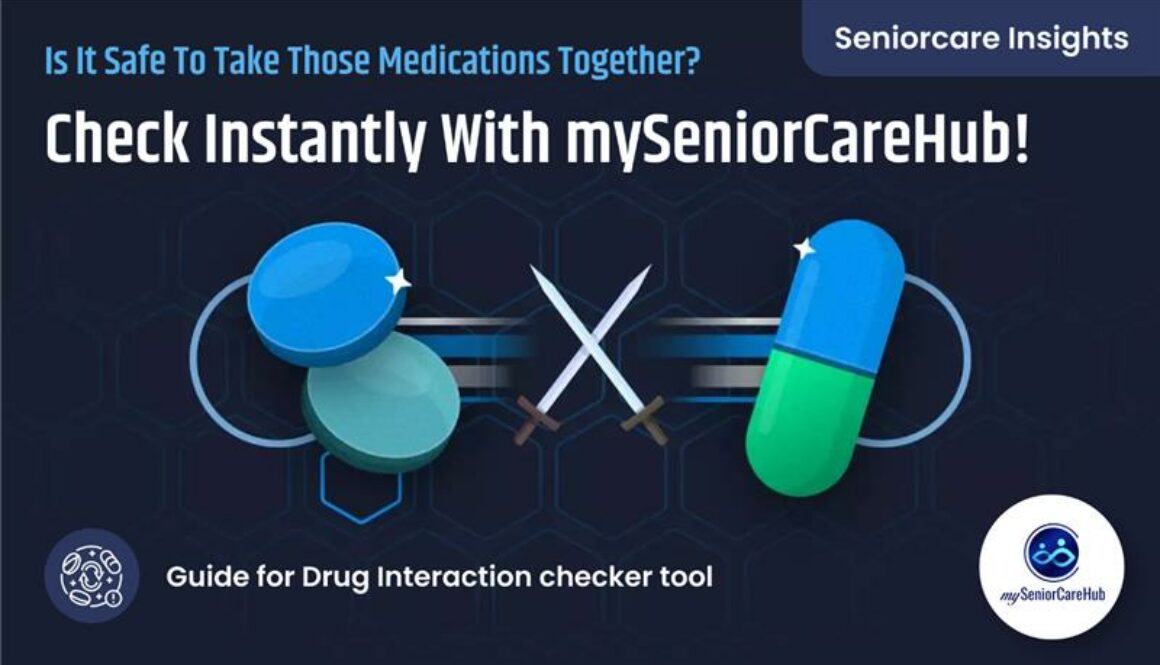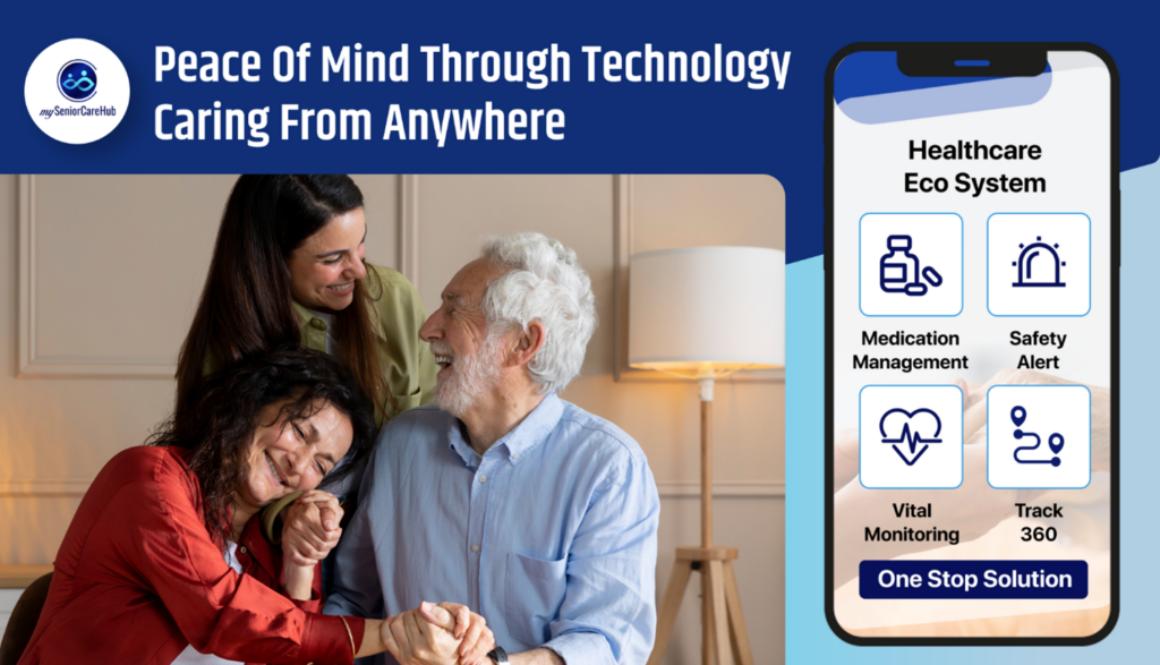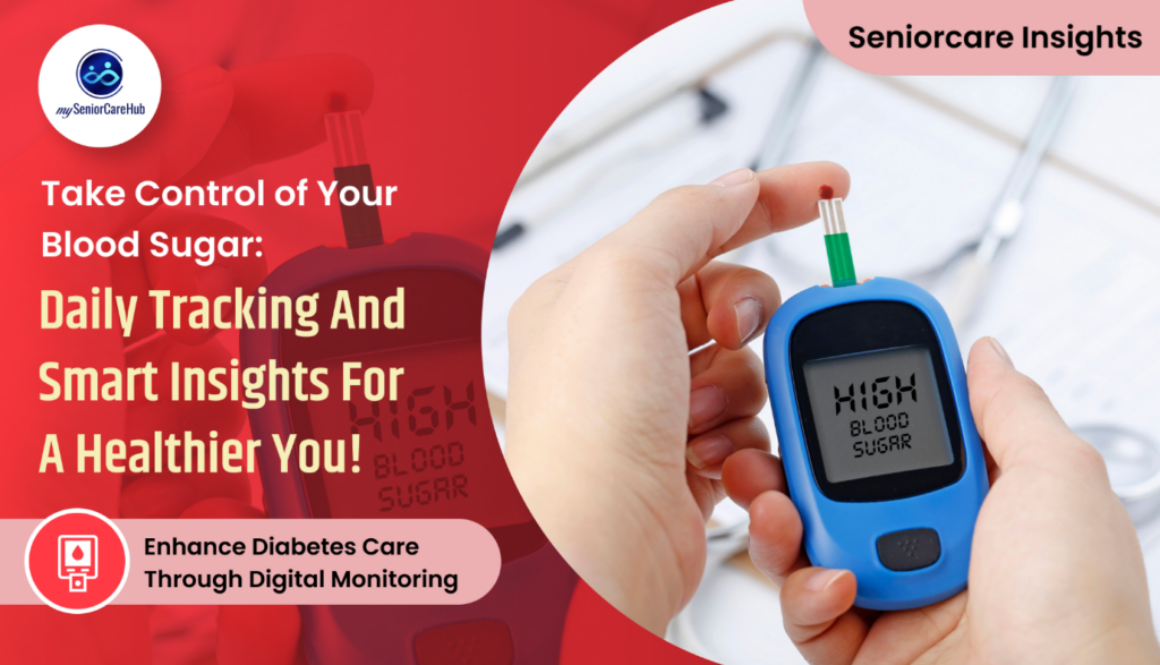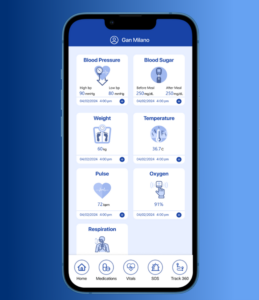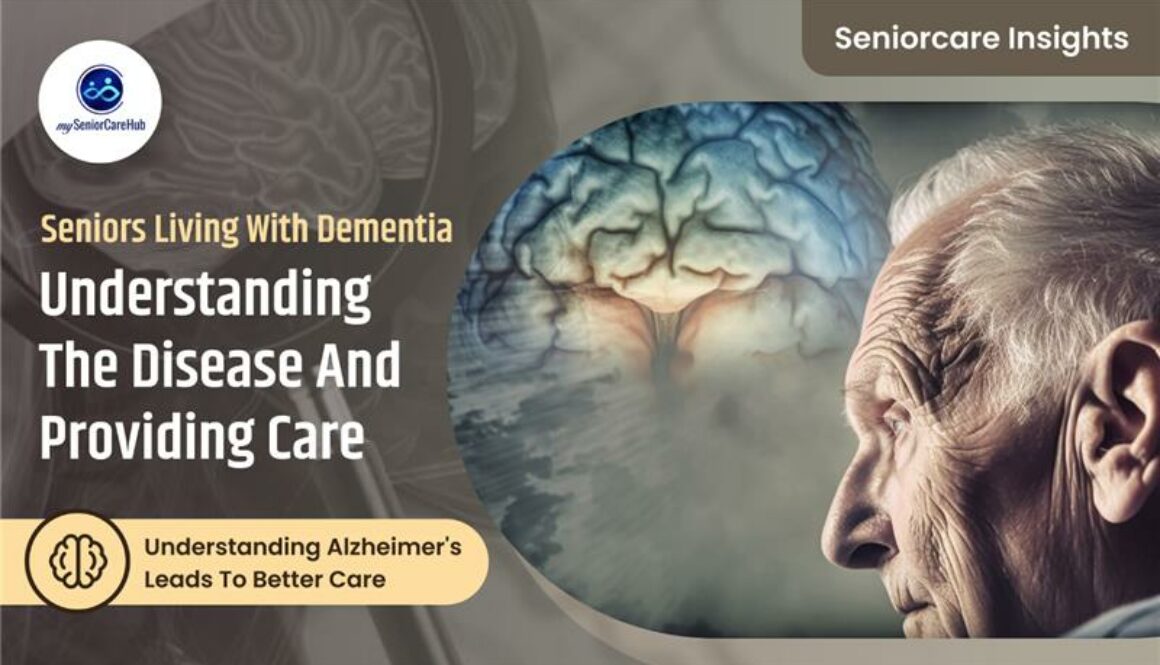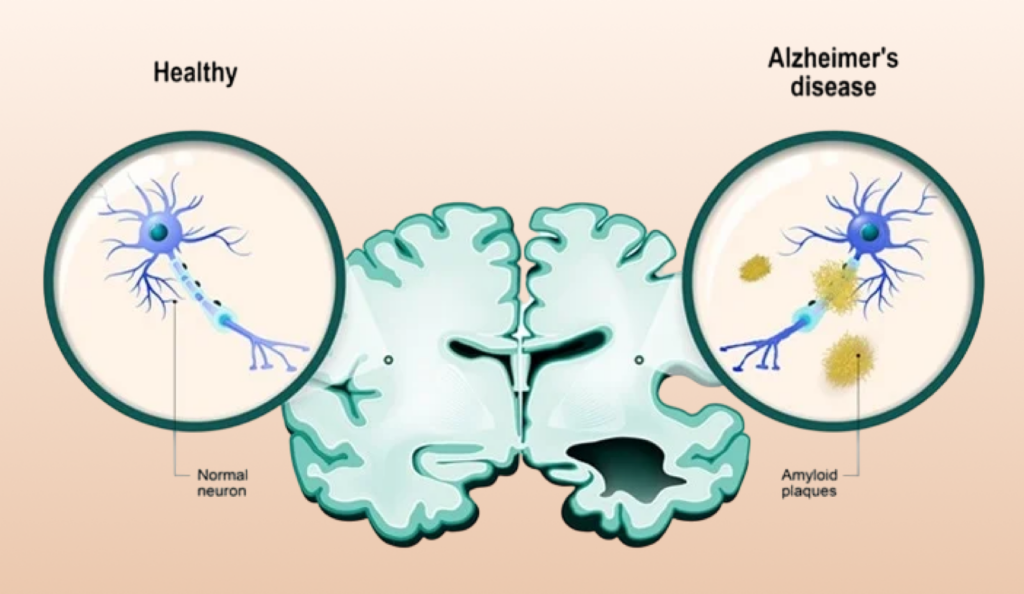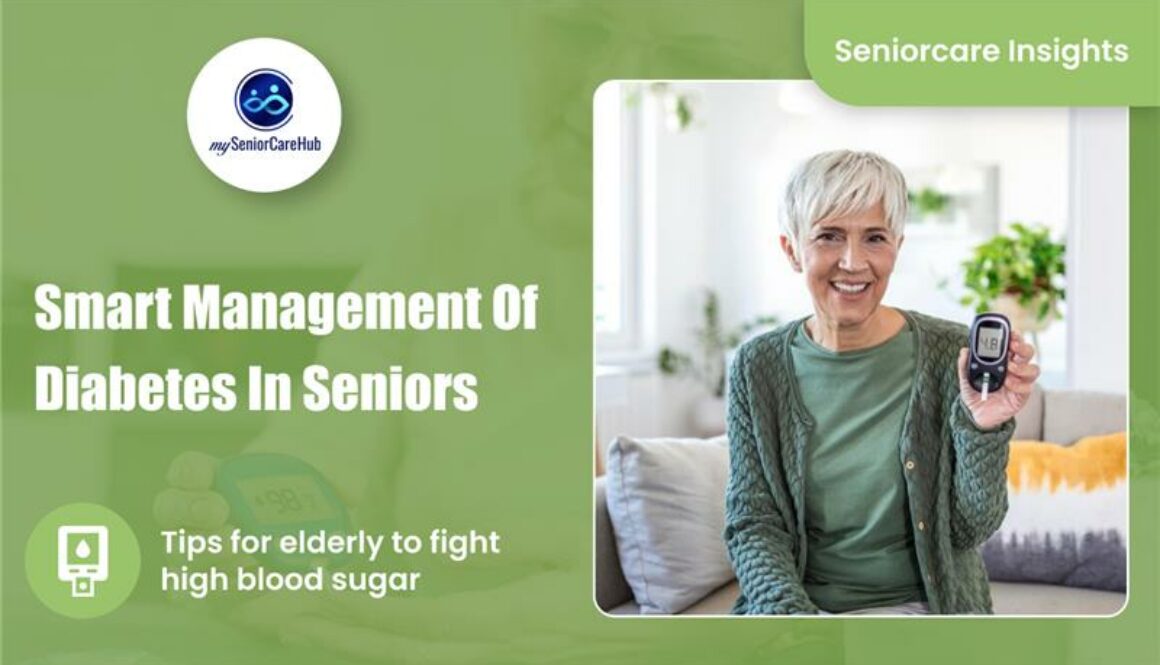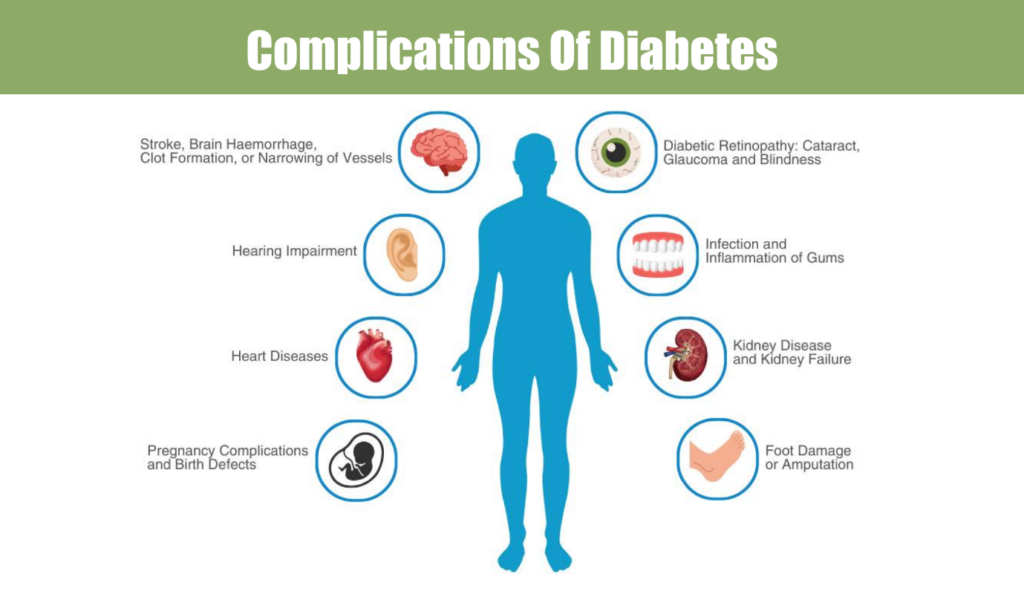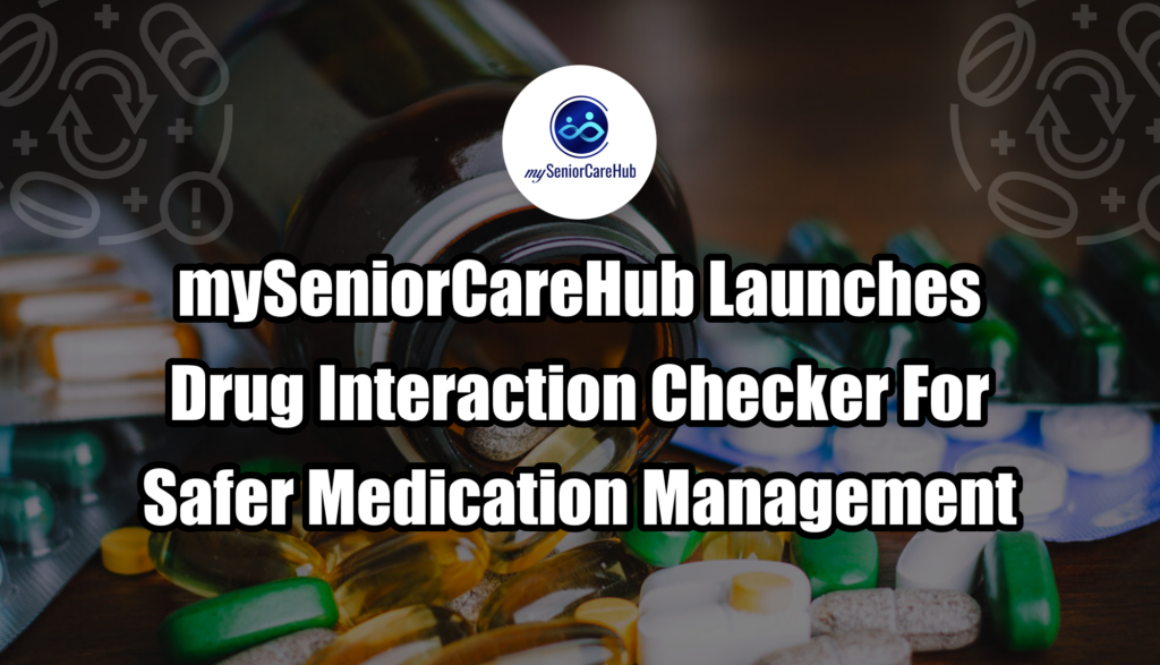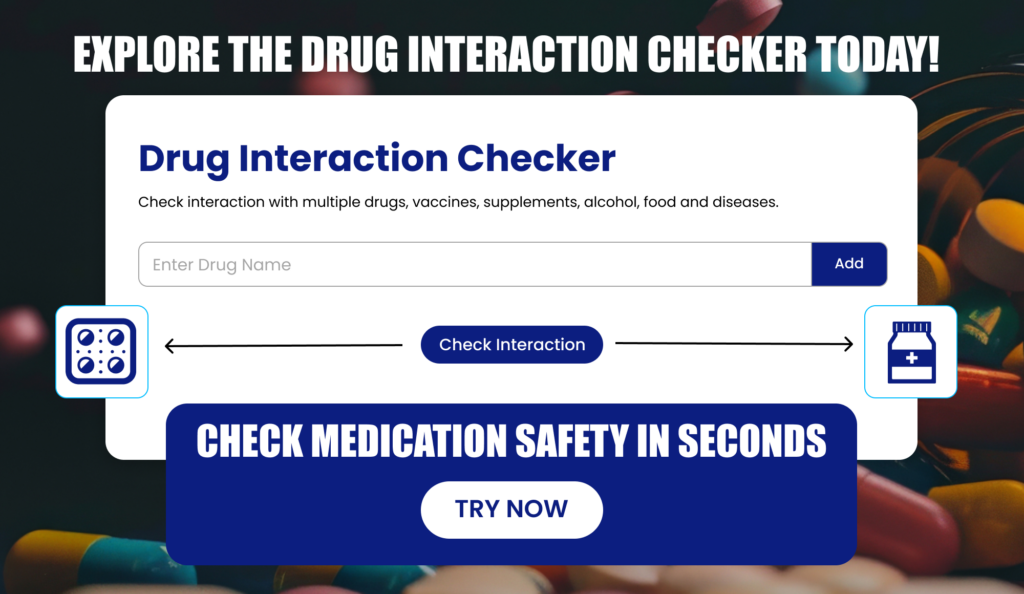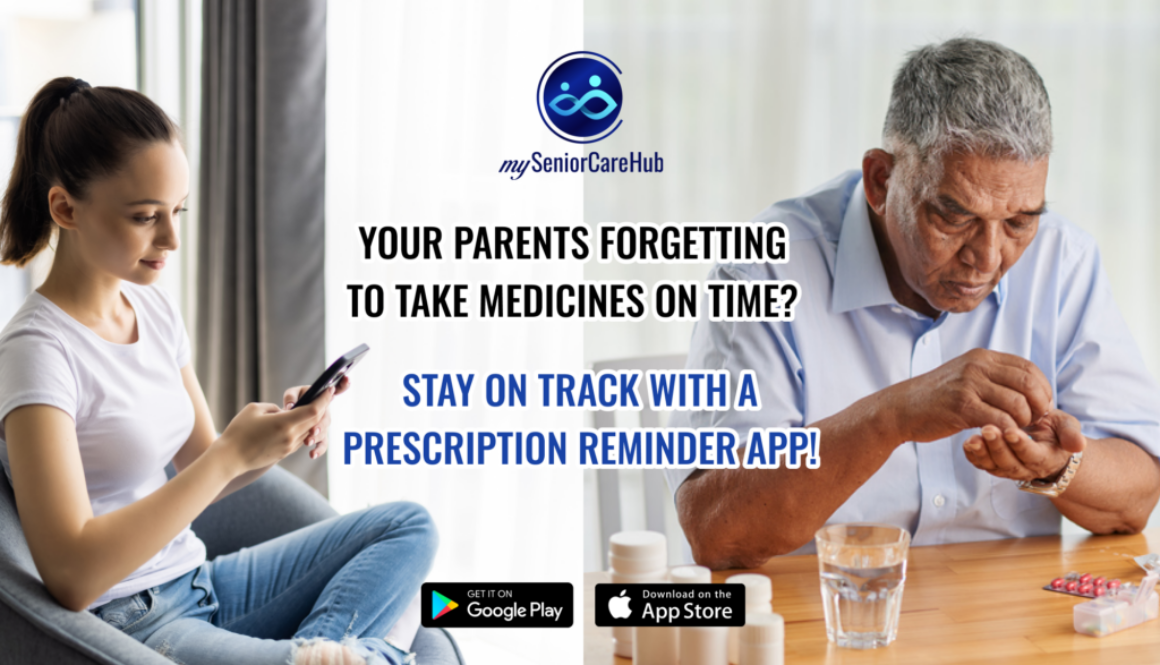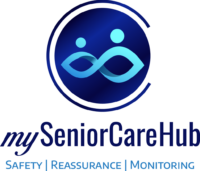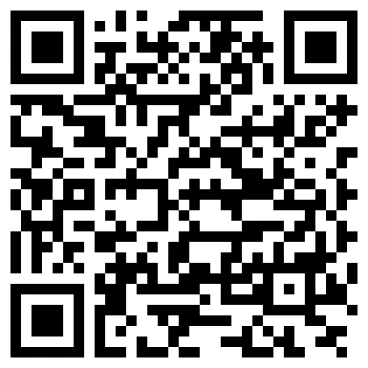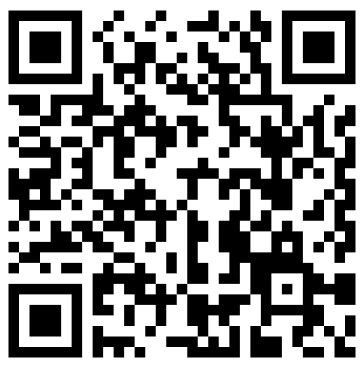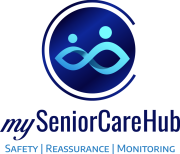Use mySeniorCareHub – Best Symptoms and Medications Checker
Health Confusion Is Real in Old Age
After breakfast, Maria suddenly felt dizzy. Her daughter wondered whether it was her blood pressure medicine acting up or if she hadn’t eaten enough. But then she remembered Maria had recently started a new medicine too. Was it a side effect? Or a sign of a new health problem?
For many seniors and caregivers, such confusion is common. As we age, our bodies respond differently to medications. Additionally, symptoms often overlap — fatigue may result from anything ranging from low blood sugar to a drug interaction. Accessing prompt and precise health advice can be crucial in these situations.
That’s where smart digital tools come in. Instead of making blind guesses, these tools allow you to understand what your body is saying and what your medicines are doing. Let’s look at three features that help seniors and caregivers stay ahead of potential health issues.
1. Symptom Checker: Making Sense of What the Body Is Saying
Seniors often describe feeling “off” without being able to articulate what’s wrong. A low-grade fever, loss of appetite, or unexplained fatigue can be brushed off as “just age.” But these could be early signs of a serious condition.
The Symptom Checker helps users input symptoms like “burning while urinating” or “joint stiffness” and instantly provides a list of possible health conditions. Although it does not diagnose, it helps you make educated decisions by giving you a sense of what might be happening.
Example: Robert’s uncle started feeling confused and unusually tired. With this insight, they saw the doctor early and avoided hospitalization.
Why It Matters:
- Conditions like UTI, anemia, low sodium, or thyroid issues show up as vague symptoms.
- Early clarity can prevent complications and give peace of mind.
- Caregivers can prepare better for doctor visits.
Medical Insight: Many age-related illnesses begin with subtle symptoms. For instance, hypothyroidism in the elderly might appear as depression or slowed thinking. Electrolyte imbalances often mimic neurological disorders. The Symptom Checker brings hidden possibilities to the surface, helping bridge the gap between home care and clinical diagnosis.
2. Drug Interaction Checker: Avoiding Dangerous Drug Combinations
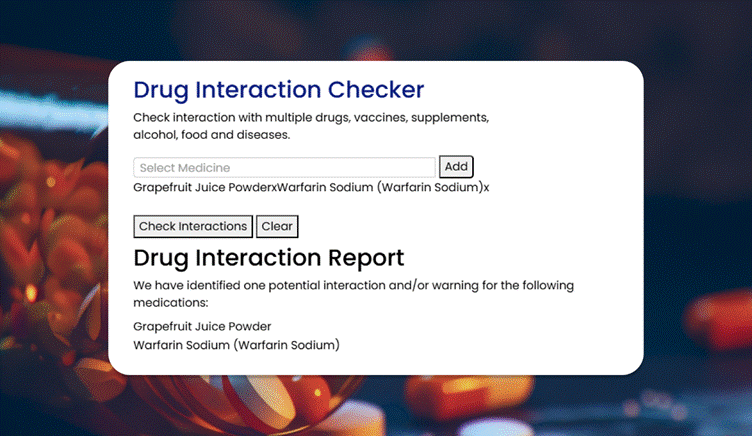
Older adults are often prescribed multiple medications for chronic conditions like diabetes, hypertension, and arthritis. This is called polypharmacy. While necessary, it increases the risk of drug-drug interactions that can worsen existing issues or create new ones.
The Drug Interaction Checker allows you to enter two or more medications and instantly find out if there’s a potential interaction. It highlights the severity (minor, moderate, or major) and gives a short explanation of the possible consequences.
Example: Sofia was taking Clopidogrel (a blood thinner) along with Ibuprofen (a common painkiller). She started experiencing stomach discomfort and bruising. Her son used the Drug Interaction Checker and discovered that the combination increases the risk of internal bleeding. They consulted their doctor, who quickly made a safer adjustment.
Why It Matters:
- Prevents harmful side effects before they escalate
- Saves time and panic between doctor visits
- Builds awareness of what each medication is doing in the body
Medical Insight: Common risky interactions include:
- ACE inhibitors with potassium supplements can lead to dangerous hyperkalemia.
- Warfarin with antibiotics like ciprofloxacin increases bleeding risk.
- Metformin with contrast dye may cause kidney damage if not paused before imaging.
The Drug Interaction Checker acts as an early warning system, especially valuable when new drugs are added or when visiting multiple specialists.
3. Drug Information Checker: Know What You’re Taking

Understanding the medicines you’re taking is the first step toward safe health management. But with so many brand names and tablets that look similar, it gets confusing. This is especially tough for seniors managing medications on their own.
The new Drug Information Checker offers a one-line summary for each medication. For any searched medicine, you now get:
- Generic Name
- Drug Class
- Indication
- Dosage Form
Example: Geeta had three white tablets but couldn’t recall what they were for. She searched for them on the app and quickly found
- Metformin—Antidiabetic—Controls Blood Sugar—Oral tablet
- Amlodipine – Calcium channel blocker – Treats high BP – Oral tablet
- Rabeprazole—proton pump inhibitor—for acidity—oral capsule
She was finally able to organize her pillbox and follow her routine without waiting for her daughter to come home.
Why It Matters:
- Helps seniors regain control over their medication
- Avoids confusion and dose skipping
- Makes caregiver handovers smoother
Medical Insight: Many seniors unknowingly take duplicate medications under different brand names, or they may skip essential drugs due to misunderstanding their purpose. For example, missing thyroxine can lead to severe fatigue and mental fog. Alternatively, taking a diuretic on an empty stomach might cause dizziness. The Drug Information Checker simplifies this puzzle.
Real-Life Impact: Small Tools, Big Relief – Best Symptoms and Medications Checker
Take the story of 70-year-old Bryan, who lives alone in NJ. One morning, he felt weak and dizzy. He feared a heart problem. But using the symptom checker, he found that it might be dehydration or low sodium. He increased his fluids and booked a check-up. Later, doctors confirmed a mild electrolyte imbalance. The early self-check prevented a hospital visit.
Or Seles, a caregiver juggling her job and her father’s medication. She uses the Drug Interaction Checker whenever a new medicine is added. It has helped her feel more confident and involved in her father’s care.
In another case, Katy had been feeling bloated and irregular after meals. She suspected it was just aging digestion. But the Symptom Checker pointed toward gastritis, and the Drug Information Checker revealed that one of her meds, an NSAID, could irritate the stomach lining. A switch in medicine resolved the issue within a week.
Conclusion: Clarity Over Confusion
In today’s world, healthcare isn’t just about doctors and hospitals. It’s about information and timely action. With smart tools like the Symptom Checker, Drug Interaction Checker, and Drug Information Checker, elderly people and their families can avoid panic, understand risks, and get care faster.
These tools don’t replace doctors but empower you in between visits. When health feels uncertain, clarity is care. Stop guessing. Start knowing. Take control of senior health, one tap at a time.

